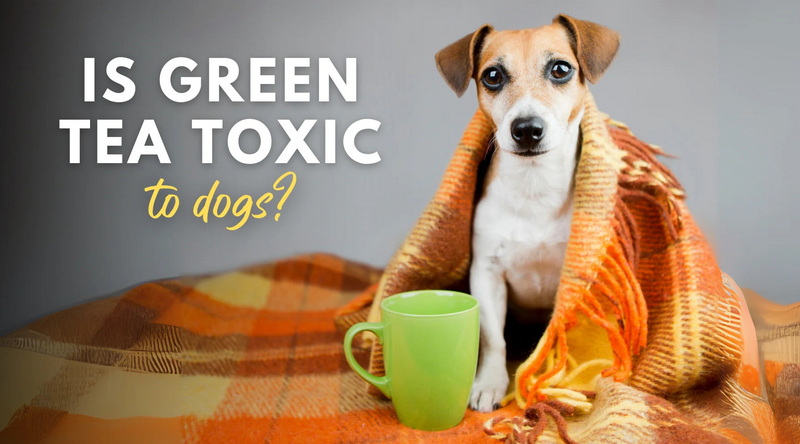Content Menu
● The Composition of Green Tea Leaf Extract
● Potential Dangers of Green Tea Leaf Extract for Dogs
>> Caffeine Toxicity
>> Liver and Kidney Damage
>> Gastrointestinal Issues
● The Impact of Fasting on Green Tea Extract Toxicity
● Potential Benefits of Green Tea for Dogs
>> Antioxidant Properties
>> Dental Health
>> Cancer Prevention
● Safe Alternatives to Green Tea Leaf Extract for Dogs
● Guidelines for Using Green Tea Products with Dogs
● Conclusion
● FAQ
>> 1. Can I give my dog regular green tea to drink?
>> 2. What are the signs of green tea toxicity in dogs?
>> 3. Are there any safe green tea products for dogs?
>> 4. How does fasting affect green tea toxicity in dogs?
>> 5. What are some safe alternatives to green tea for promoting my dog's health?
● Citations:
Green tea has long been celebrated for its numerous health benefits in humans, but when it comes to our canine companions, the situation is more complex. This article will explore the potential dangers and benefits of green tea leaf extract for dogs, providing a comprehensive overview of the current research and expert opinions on this topic.

The Composition of Green Tea Leaf Extract
Green tea leaf extract is derived from the leaves of Camellia sinensis, the same plant used to make various types of tea. The extract contains several bioactive compounds, including:
- Catechins (particularly epigallocatechin gallate or EGCG)
- Caffeine
- L-theanine
- Tannins
These compounds are responsible for many of the health benefits associated with green tea in humans. However, their effects on dogs can be quite different and potentially harmful.
Potential Dangers of Green Tea Leaf Extract for Dogs
Caffeine Toxicity
One of the primary concerns with green tea leaf extract for dogs is its caffeine content. Dogs are more sensitive to caffeine than humans, and ingestion can lead to caffeine toxicity[4]. Symptoms of caffeine toxicity in dogs include:
- Restlessness
- Rapid breathing
- Heart palpitations
- Muscle tremors
- Vomiting
- Diarrhea
- In severe cases, seizures and death
Liver and Kidney Damage
Research has shown that green tea extract can cause severe liver and kidney damage in dogs, particularly when administered in high doses or to fasted animals[7]. A study conducted on fasted dogs revealed alarming results:
- Necrosis of liver cells
- Damage to gastrointestinal epithelia
- Renal tubule necrosis
- Atrophy of reproductive organs
- Atrophy and necrosis of hematopoietic tissues
These findings highlight the potential for serious harm when green tea extract is given to dogs, especially on an empty stomach.
Gastrointestinal Issues
Even in lower doses, green tea extract can cause gastrointestinal distress in dogs. Common symptoms include:
- Vomiting
- Diarrhea
- Excessive salivation
- Abdominal pain
These symptoms can be particularly severe in younger or smaller dogs[2].
The Impact of Fasting on Green Tea Extract Toxicity
An intriguing aspect of green tea extract toxicity in dogs is the role of fasting. Studies have shown that fasted dogs are more susceptible to the harmful effects of green tea extract compared to non-fasted dogs[7]. This phenomenon is not fully understood but may be related to:
1. Increased absorption of catechins on an empty stomach
2. Altered metabolism of green tea compounds during fasting
3. Increased vulnerability of target organs in a fasted state
This finding underscores the importance of considering a dog's feeding status when evaluating the potential risks of green tea extract supplementation.

Potential Benefits of Green Tea for Dogs
Despite the potential dangers, some studies suggest that green tea, when used cautiously and in appropriate forms, may offer certain benefits to dogs:
Antioxidant Properties
Green tea is rich in antioxidants, which can help combat oxidative stress and inflammation in dogs[1]. This property may be beneficial for dogs with chronic inflammatory conditions or those at risk of certain cancers.
Dental Health
Some research indicates that green tea may have positive effects on canine dental health. A study found that green tea extract could help reduce plaque buildup and oral malodor in dogs[9].
Cancer Prevention
While more research is needed, some studies suggest that the polyphenols in green tea may have anti-cancer properties in animals, including dogs[6].
Safe Alternatives to Green Tea Leaf Extract for Dogs
Given the potential risks associated with green tea leaf extract, pet owners may want to consider safer alternatives to provide similar benefits:
1. Decaffeinated green tea products specifically formulated for pets
2. Other antioxidant-rich foods safe for dogs, such as blueberries or sweet potatoes
3. Veterinary-approved dental chews for oral health
Guidelines for Using Green Tea Products with Dogs
If you're considering incorporating green tea into your dog's diet, follow these guidelines:
1. Always consult with your veterinarian first
2. Use only decaffeinated green tea products designed for pets
3. Start with very small amounts and monitor your dog's reaction
4. Never give green tea or its extracts to fasted dogs
5. Discontinue use immediately if you notice any adverse reactions
Conclusion
While green tea leaf extract has gained popularity as a health supplement for humans, its use in dogs is fraught with potential dangers. The risk of caffeine toxicity, liver and kidney damage, and gastrointestinal issues outweighs the potential benefits for most dogs. The increased toxicity observed in fasted dogs further complicates its use as a supplement.
Pet owners should exercise extreme caution when considering green tea products for their dogs. It's crucial to prioritize your dog's safety and consult with a veterinarian before introducing any new supplements to their diet. In many cases, the risks associated with green tea leaf extract make it an unsuitable choice for canine health supplementation.
As responsible pet owners, it's our duty to make informed decisions about our dogs' health and well-being. While the allure of natural remedies is strong, not all natural products are safe for our furry friends. When it comes to green tea leaf extract, the potential dangers should give us pause and encourage us to seek safer alternatives to support our dogs' health.

FAQ
1. Can I give my dog regular green tea to drink?
No, it's not recommended to give your dog regular green tea. The caffeine content can be harmful, and the tannins may cause digestive issues. If you want to incorporate green tea into your dog's diet, only use decaffeinated products specifically formulated for pets, and always consult with your veterinarian first.
2. What are the signs of green tea toxicity in dogs?
Signs of green tea toxicity in dogs may include vomiting, diarrhea, restlessness, rapid breathing, heart palpitations, muscle tremors, and in severe cases, seizures. If you suspect your dog has ingested green tea or its extract and is showing these symptoms, contact your veterinarian immediately.
3. Are there any safe green tea products for dogs?
Some pet-specific products contain decaffeinated green tea extracts that may be safer for dogs. However, it's crucial to use these products under veterinary guidance and to start with very small amounts to monitor your dog's reaction.
4. How does fasting affect green tea toxicity in dogs?
Studies have shown that fasted dogs are more susceptible to the toxic effects of green tea extract. The exact mechanism is not fully understood, but it may be related to increased absorption of catechins on an empty stomach or altered metabolism of green tea compounds during fasting.
5. What are some safe alternatives to green tea for promoting my dog's health?
Safe alternatives to green tea for promoting your dog's health include other antioxidant-rich foods like blueberries or sweet potatoes, veterinary-approved dental chews for oral health, and supplements specifically formulated for dogs under veterinary guidance. Always consult with your veterinarian before introducing any new supplements or foods to your dog's diet.
Citations:
[1] https://pawsandclawsanimalhospital.com/green-tea-for-dogs/
[2] https://pubmed.ncbi.nlm.nih.gov/24344857/
[3] https://pmc.ncbi.nlm.nih.gov/articles/PMC2687403/
[4] https://felcana.com/blogs/blog/tea-for-dogs
[5] https://peterdobias.com/blogs/blog/is-green-tea-toxic-to-dogs
[6] https://onlinelibrary.wiley.com/doi/full/10.1111/jpn.13219
[7] https://pubmed.ncbi.nlm.nih.gov/21098339/
[8] https://pmc.ncbi.nlm.nih.gov/articles/PMC11606291/
[9] https://ap-vet.co.uk/can-dogs-benefit-from-green-tea/






























